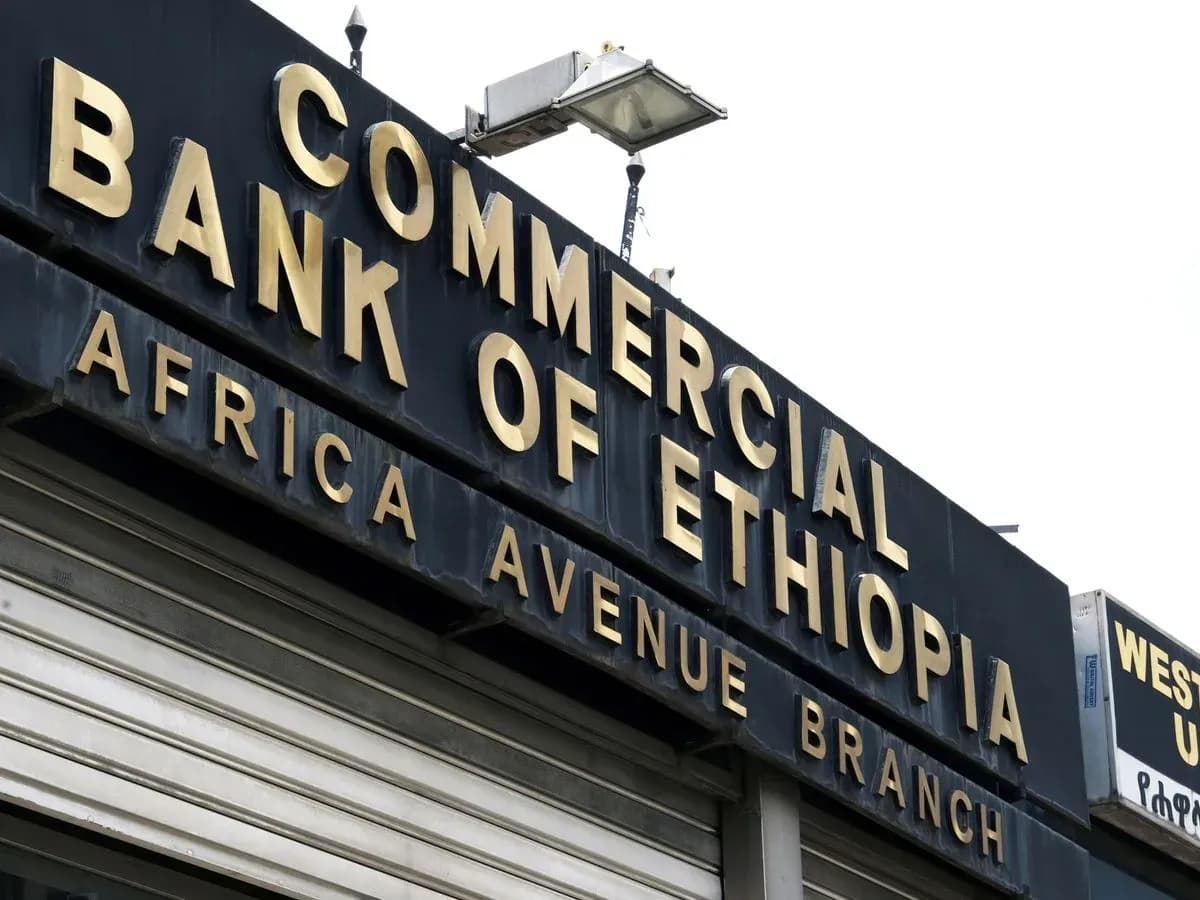Progress for 0 ad
Progress for 1 ad
Progress for 2 ad
Progress for 3 ad


Asresahegn Yilma
Addis Ababa, Ethiopia

In a recent article titled “Is the Commercial Bank of Ethiopia’s Introduction of New Banking Fees Justified?” by Omer Hussein, the introduction of new banking fees by the Commercial Bank of Ethiopia (CBE) is scrutinized, raising questions about its necessity and fairness.
While the article presents valid concerns, a closer examination of the economic landscape and the challenges faced by CBE provides a more nuanced understanding of the rationale behind these fee adjustments.
Firstly, it’s essential to acknowledge the changing economic environment in Ethiopia. As inflation rates rise and operating costs increase, businesses across various sectors are compelled to adjust their prices to remain sustainable.
The banking industry is no exception, with CBE facing mounting expenses associated with vendor payments for essential systems like core banking, and mobile banking services, and rising costs of materials such as ATM machines, POS machines, and stationery, including withdrawal, deposit, and transfer vouchers, passbooks, CPOs, checkbooks. Without adjusting fees to reflect these realities, it would be challenging for CBE to remain profitable and sustainable in the long term. For a bank that has been accustomed to offering services without charges, these adjustments may seem novel. However, they are a pragmatic response amid escalating operational costs.
Moreover, CBE’s decision to introduce new fees is not arbitrary but rather a strategic response to evolving market dynamics. While the bank has historically provided certain services for free, the changing economic landscape requires a reassessment of this approach.
For many years, CBE has offered its customers Local Money Transfer Service (LMTS) with varying service charges starting from 10 birr, 15 birr, and 25 birr, depending on the amount of money transferred. However, approximately 12 years ago, CBE began to incentivize customers to open and maintain accounts by offering free transfers between accounts of the same bank, regardless of the amount of money and frequency of the transaction. This shift in strategy reflects the bank’s evolving objectives and other private banks followed suit.
Before five years, the bank’s external consultants, including Frankfurt and Boston Consulting Groups, expressed surprise at the absence of charges for the services provided, questioning, “What kind of business doesn’t charge its customers for the service it provides?” They repeatedly suggested implementing charges for the services, but CBE insisted on providing free services to customers until just recently.
Furthermore, comparisons with other private businesses and public organizations highlight the widespread practice of adjusting prices based on current market realities. Public organizations like the Ethiopian Immigration and Citizenship Service (ICS) increased the price of passports from 600 birr to 2,000 birr (that is a whopping 233% increase). Similarly, Ethiopian Airlines have increased its airplane ticket prices for both local and international travel in response to economic pressures. Ethiopian Electric Utility (EEU) increased its electricity price a year ago without eliciting a significant public outcry.
However, the outrage surrounding CBE’s fee adjustments stems from the perception that it is a departure from the bank’s longstanding practice of providing free services.
The short answer is yes, and here’s why: regardless of customer usage, the system is up and running, and there are costs associated with maintaining the system. Some people would argue, “We haven’t been using the mobile banking app or service in the past month or so, and why should we be charged monthly maintenance fees?” However, that argument begs the question: wouldn’t they be charged if they didn’t use the broadband internet they subscribed to in the past month? Certainly not! Of course, they’ll be charged regardless of their usage. This maintenance fee also applies to water and electricity services, whether the customer uses the service or not. The practice of charging maintenance fees regardless of usage is commonplace, not just in the banking industry but also in public organizations and private businesses alike.
Yes, CBE does subsidize some services. Take, for example, the domestic card banking service. The actual cost of producing a single debit card is approximately 300 birr, including additional logistics costs such as transporting the card to the main branch. However, CBE offers new and replacement domestic debit cards for only 50 birr, effectively subsidizing the remaining cost of approximately 250 birr per card. It is worth noting that some private banks provide similar debit card services at twice the price of CBE’s 50 birr.
In addition to the domestic card banking service mentioned earlier, CBE also provides free POS terminals to merchants. The price range of these POS terminals typically varies from approximately ETB 15,000 to 18,000 to 30,000 and more, depending on the model. CBE covers all other costs associated with running the POS business, including SIM card/Ethernet data service every month, as well as thermal paper costs. It’s important to note that this practice is not unique to CBE alone; it’s a standard banking industry practice in Ethiopia. These are just a few examples of the services that most banks provide for free by subsidizing most of the costs, ensuring that the prices don’t fall on consumers.
While the introduction of new service charges by CBE has sparked debate, it’s crucial to understand that these fees should be seen as a form of cost-sharing rather than the primary source of revenue generation for the bank. It is worth noting that while CBE subsidizes some services, the revenue structure of banks in developed countries differs significantly. For example, JPMorgan Chase, one of the largest banks in America, derives just over a third of its revenue from fees. This contrasts with the banking landscape in Ethiopia, where the traditional model of lending money remains predominant, accounting for approximately 98% of the banks’ revenue and with only 2% attributed to fees.
With the Ethiopian banking sector opening up to foreign banks, it is imperative for CBE to proactively address these challenges, adapting its strategies to navigate the evolving landscape effectively.
Here’s the thing: Every public and private organization adjusts its service and product prices based on the current market reality. From Kebeles to Weredas, from restaurants to boutiques, from schools to rental homes, businesses across all sectors have adjusted their prices over the past few years.
Similarly, public organizations like CBE must adapt to changing economic conditions to remain sustainable. While the outrage surrounding CBE’s fee adjustments may stem from its departure from longstanding practices, it is a necessary step to ensure the bank’s financial viability and continued provision of quality services to its customers.
Additionally, the significant outcry surrounding the introduction of these charges stems from the fact that some of these services were previously offered free of charge. It’s not merely a reaction to a price increase on existing services; rather, it reflects a desire to maintain the status quo. People have become accustomed to accessing these services without fees, and any deviation from this established norm prompts strong resistance and outcry.
The introduction of new banking fees by the CBE reflects a multifaceted response to the challenges posed by the evolving economic landscape. By aligning its fee structure with market realities and strategic imperatives, CBE aims to maintain financial sustainability while continuing to provide quality services to its customers. A comprehensive understanding of these factors is crucial for stakeholders to appreciate the complexities underlying fee adjustments in the banking industry.